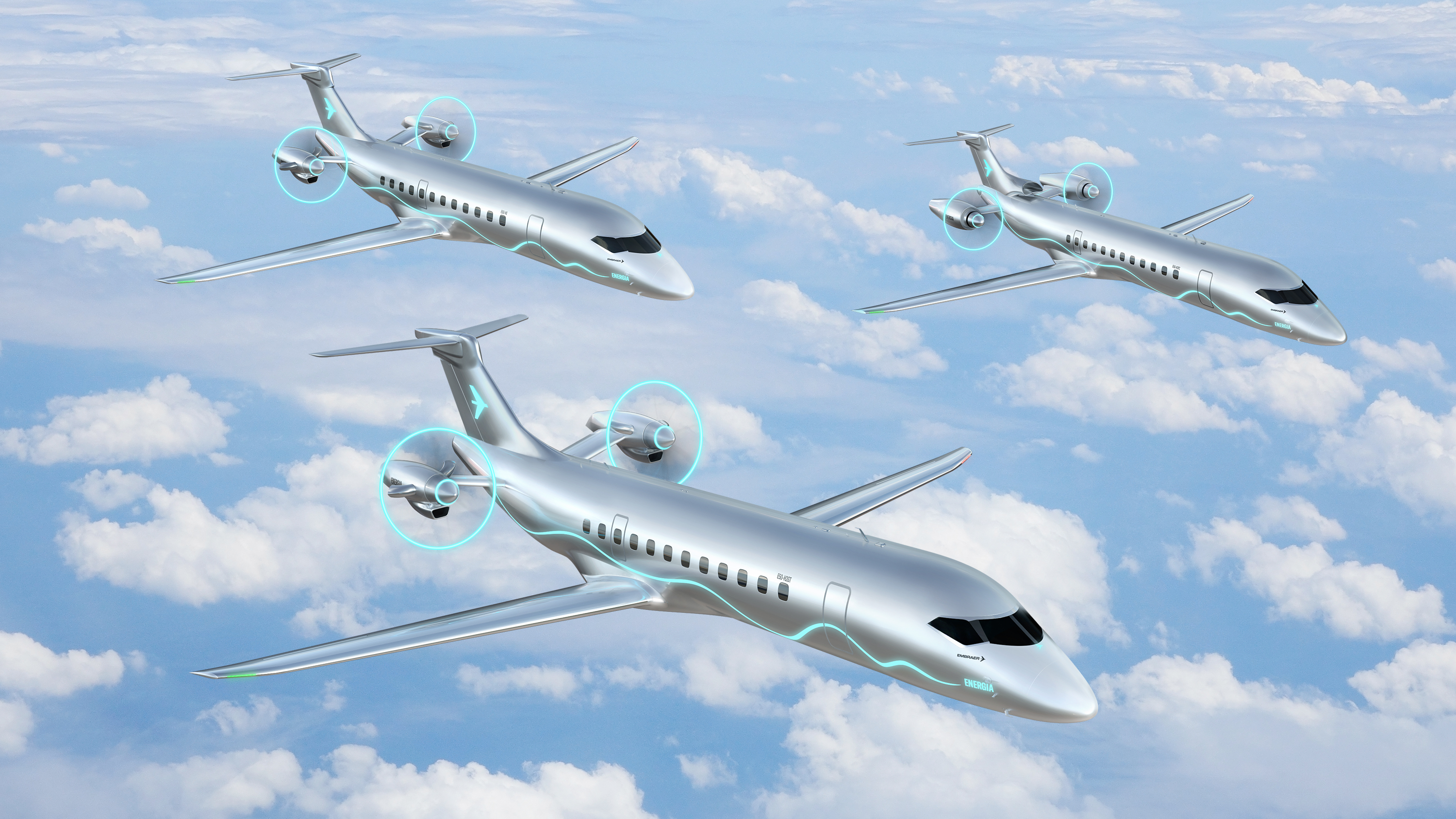As the world’s priorities change to focus on the impact the way we live has on our environment, we’re already doing everything we can to make sure Embraer aircraft are some of the most sustainable in the sky – and have been doing so for some time. It’s why our class-leading E-Jet family were testing sustainable aircraft fuels a decade ago and why the E2 Profit Hunter still meet the most up-to-date sustainability regulations.
And it’s not just our aircraft, our commitment to sustainability is at the core of our entire production chain from processes, to facilities to our supply network. All coming together to make us Environment Champions.
Aviation has made the dream to fly a reality and through this journey has driven global technological development and innovations. Our industry provides the most efficient worldwide transportation network, which generates economic growth, creates jobs, facilitates international trade, tourism and fosters awareness of other cultures. We believe such force can keep its technical and economical thrust with no compromise to our planet’s sustainability. At Embraer, we hold on to this conviction and are committed to be carbon neutral by 2040 from our direct emissions and energy consumption emissions and to provide solutions to achieve net zero carbon emission in Aviation by 2050.
Embraer Commercial Aviation is committed to achieving aviation’s goal of reducing C02 emissions and are a signatory of “Climate Action Takes Flight”



In alignment with ATAG (Air Transport Action Group) and CORSIA (Carbon O setting and Reduction Scheme for International Aviation)
The E2 features Pratt & Whitney GTF™ engines, a new wing and other advancements that together result in double-digit reduction in fuel consumption and maintenance costs – as well as saving up to 56,000 tons of CO2 per year for operators replacing their older fleets.

Sustainability isn’t just about reducing fuel consumption and carbon emissions. It’s also about cutting the amount of noise our aircraft make. That’s why E2 is not only the most efficient aircraft in single aisle, it’s also the quietest.
The figures are impressive. The E2 exceed noise compliance regulations. The E2 must comply with Chapter 4, but has reached the far more stringent Chapter 14.

For airlines to be sustainable, they need to fill seats without emitting more pollutants than necessary and have a lower footprint per trip. The rightsized E2 Profit Hunter provides the perfect solution.
By replacing larger and less efficient aircraft with the smaller and rightsized E2 Profit Hunter, airlines can reduce carbon emissions by 30%. That’s 3,700kg less CO2 per flight and a reduction of 1 million.

Sustainability isn’t just about reducing fuel consumption and carbon emissions. It’s also about cutting the amount of noise our aircraft make. That’s why E2 is not only the most efficient aircraft in single aisle, it’s also the quietest.

The future of aviation must have a lower impact. It means lower emissions, lower noise levels and lower fuel consumption. To achieve our goals, we’re exploring a wide range of bold but viable aircraft designs in our Energia concepts– reimagining and conceptualizing everything from the aircraft’s power source to the shape of the airframe – all to achieve the industry-wide goal of net carbon zero by 2050.
Our Energia project is exploring a range of sustainable concepts to carry up to 50 passengers. This project is considering a number of energy sources, propulsion architectures and airframe layouts to reduce our carbon emissions by 50% starting from 2030 – a key step in our goal to be net carbon neutral by 2050.
E19HE / E30HE / E50HE - Combining a mix of technologies, hybrid-electric propulsion enables us to harvest the benefits from maximizing thermal and electric engines synergies.

E19H2FC / E30H2FC / E50H2FC - Hydrogen is a highly promising area in our journey to achieve zero emission flight – enabling us to generate thrust while reducing carbon emissions to zero. Hydrogen fuel cells have the potential to either run as a single power source or as a hybrid with gas turbines or batteries.

E50H2GT/DF - Future Hydrogen gas turbine offers the potential to burn direct hydrogen and, in the dual-fuel version enables us to power a gas turbine with two different fuel sources (JetA/SAF or Hydrogen), to maximize operational flexibility and reduce aircraft weight.


 CLOSE
CLOSE

